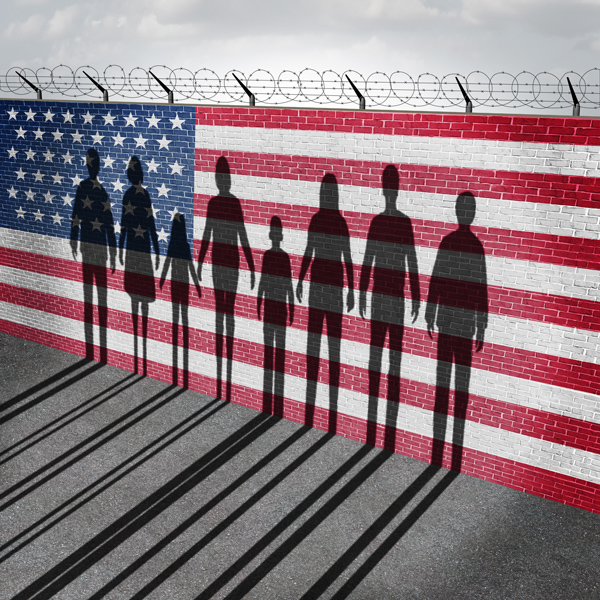Trump's crackdown on illegal immigrants lacks guidelines for businesses that hire them

While President Donald Trump’s administration is cracking down on illegal immigration, with stepped up deportations and proposing a wall on the border of Mexico, it has done nothing to address what some immigration officials for decades have considered the biggest problem: lax or nonenforcement of laws that penalize employers who hire undocumented workers, the Los Angeles Times reports.
In 1986, the Immigration Reform and Control Act, signed by President Ronald Reagan, attacked the problem of illegal immigration from three angles: It gave amnesty and residency to about 3 million undocumented immigrants, beefed up border enforcement and made it illegal to hire undocumented workers.
But the U.S. Chamber of Commerce and other business interests as well as members of Congress from the Midwest, which relies on cheap labor for the agriculture industry, supported the law only after sanctions for employers were weakened, said Peter Brownell, research director for San Diego-based the Center on Policy Initiatives. The result was low fines and a high-bar requirement that employers “knowingly employed” people who were in the country illegally.
“This made it difficult to prosecute cases,” Brownell said.
From fiscal 2009 to 2016, during the Obama administration, more than 2.5 million people were deported, while 1,337 business managers faced charges such as illegal hiring, tax evasion and money laundering.
“It’s always been easier to go after the workers,” said Doris Meissner, a former commissioner of the U.S. Immigration and Naturalization Service, which is now part of the Immigration and Customs Enforcement and Citizenship and Immigration Services. “But is that any more than just counting numbers? Does that actually change the basic magnet effect of the jobs? No.”
In 1999, then INS official Mark Reed had agents raid meatpacking companies in Nebraska that hired undocumented immigrants. Thousands of workers fled in the wake of what was called Operation Vanguard.
Reed testified in a congressional hearing as the crackdown was underway, touting it as a model for enforcement.
“The neon light is on,” Reed testified at the hearing. “It has been for decades, and that neon light is driven by jobs. As long as those jobs are available, those people are going to come in.”
Rep. Lamar Smith, R-Texas, rebuffed him. “Deportation is the strongest deterrent to illegal immigration,” Smith said.
Political pushback led to abandoning Operation Vanguard, and focus returned to arrests of immigrants and security on the Southwest border.
Reed said that the same immigration officials who had pushed for the crackdown in Nebraska, which lead to more than 3,500 workers quickly leaving, subsequently complained that it slowed down the slaughterhouses and hurt the state economy, as well as the fabric of the community.
“Turns out that these people—the workers—were part of the community,” Reed said. “Turns out these are the people who go to their church, the people they hang out at the bar with. And now they were leaving.”
Reed thinks the answer to these problems was there when the statute was enacted in 1986.
“When we did the amnesty in the mid-’80s and legalized everyone, we were supposed to seal the border and have a good guest-worker program and never have this problem again,” said Reed, now retired. “If we had done that, we wouldn’t be here today. But they purposefully didn’t do any of it.”



